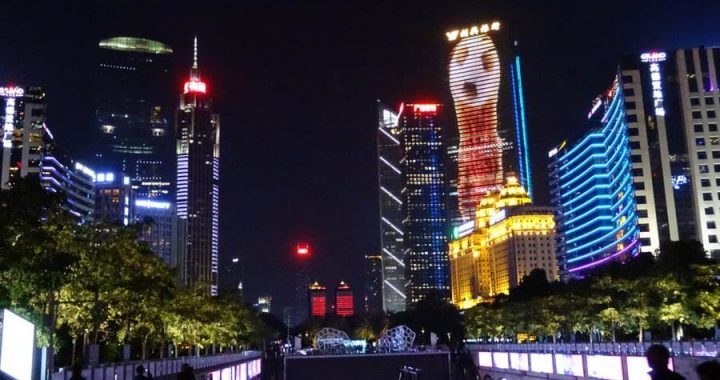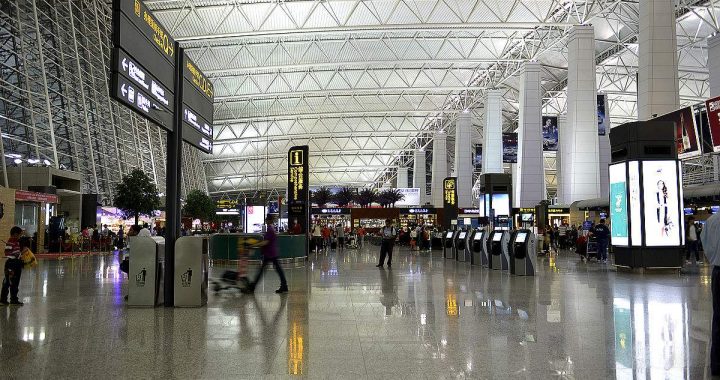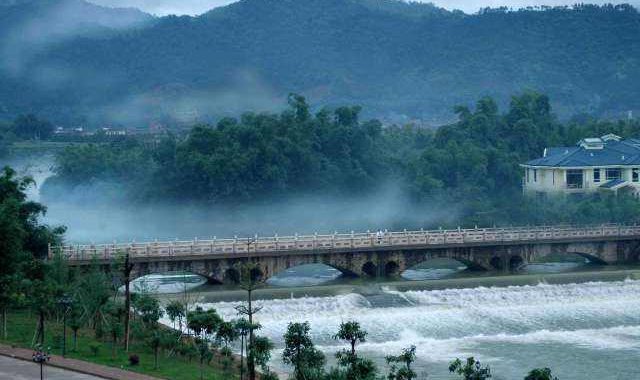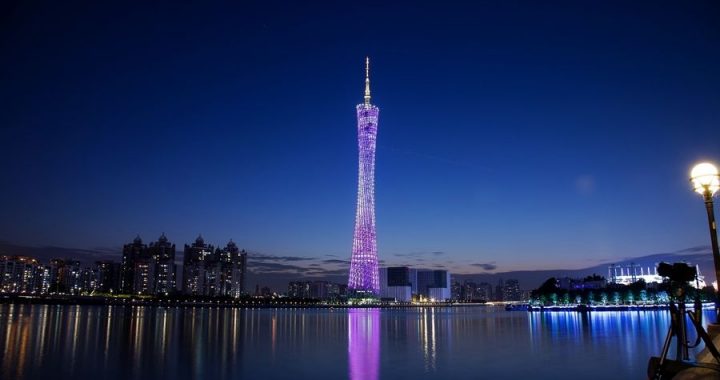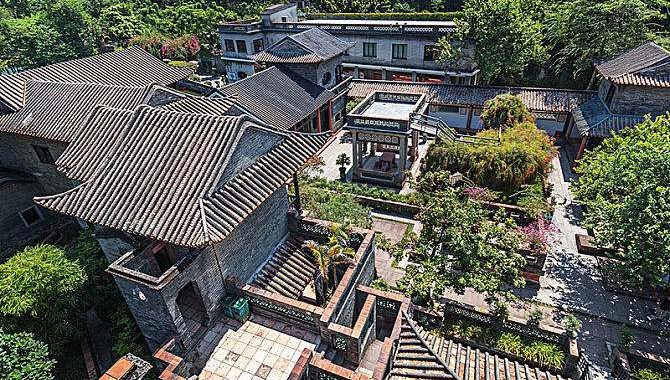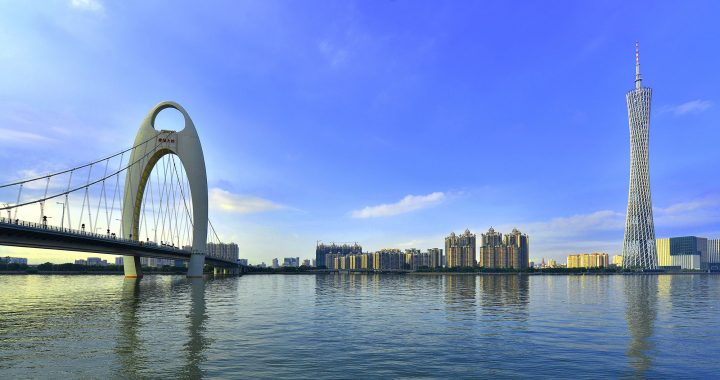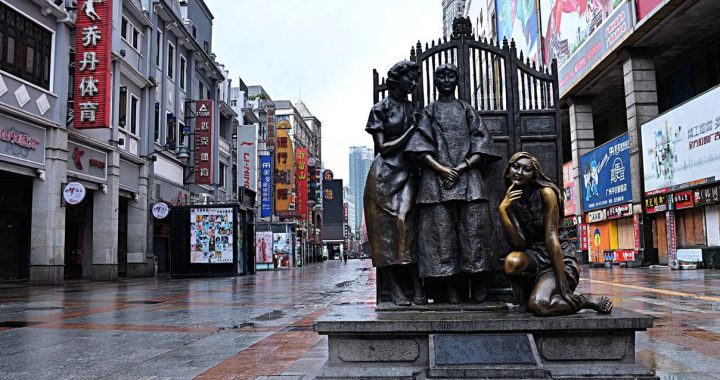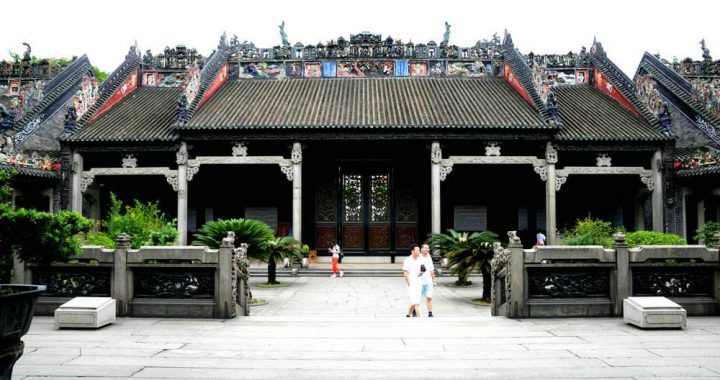Xian Xinghai
3 min readXian Xinghai(June 13,1905-0ctober 30,1945),whose family origin is Panyu District in Guangdong Province,was one of the earliest generations of Chinese composers influenced by western classical music and has influenced generations of Chinese musicians.Although he composed in all the major musical forms(two symphonies,a violin concerto,four large scale choral works,nearly 300 songs and an opera),he is best known for his Yellow River Cantata.

Early life and education
Xian Xinghai,with family heritage from Panyu,Guangdong Province,was born in Macau in 1905.He moved frequently in his early life with his mother as his father had died before Xian was born.Xian Xinghai moved with his mother to Singapore when he was six years old,he was enrolled in Yangzheng Primary School for his primary education.It was at Yangzheng Primary School that he took his first step into hismusical career.His teacher,Ou Jianfu,first noticed Xian Xinghai’s musical talent,and he was enrolled into the school’s military band.Xian Xinghai received training in both musical instruments as well as music.

He was later brought to Guangzhou for further education by his then school principal,Mr Lin Yao Xiang,along with 19 other students.Xian Xinghai started learning the clarinet in 1918 at the YMCA charity school attached to the LingnanUniversity in Guangzhou.In 1926 he joined the National Music Institute at Peking University to study music and in 1928 he entered Shanghai National Music Conservatory to study violin and piano.The same year he published his well-known essay The Universal Music.In 1929 he went to Paris where he met Ma Sicong who introduced him to many artists there and was disliked by his teacher first because he didn’t know how to play piano but one night he got home and was mad and composed a song and the teacher was fascinated with his work.
In 1934 he was the first Chinese student admitted to the Paris Conservatory to study senior composition with both Vincent D’Indy and Paul Dukas.During this period he composed Wind,Song of a Wanderer,Violin Sonata in D Minor and other works.
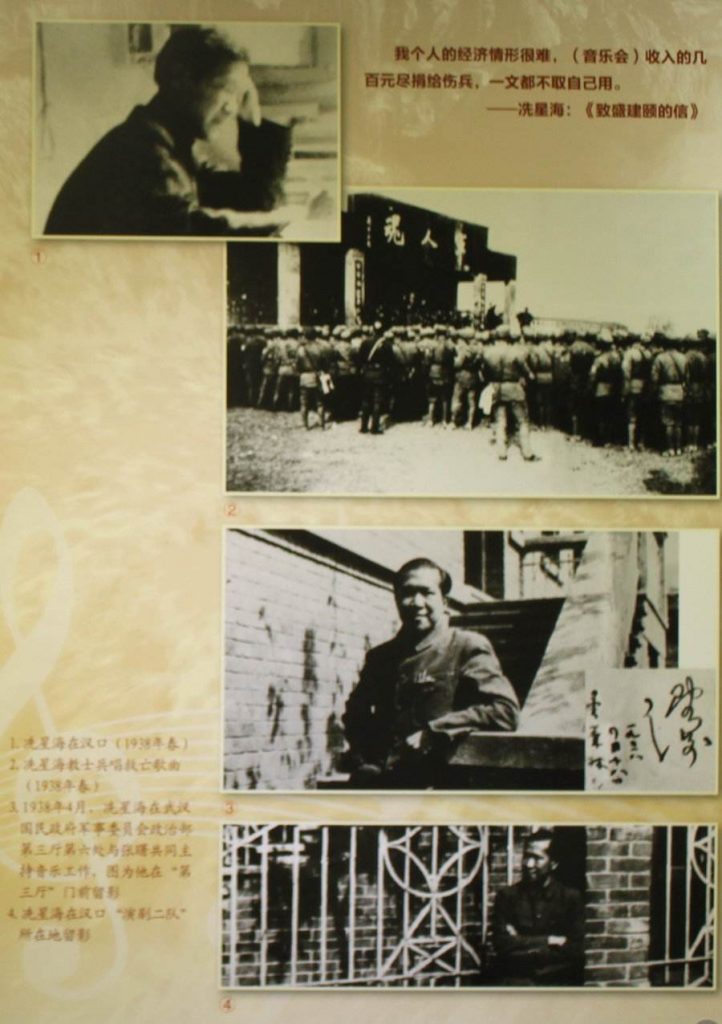
Musical career
Xian returned to China in 1935 to the Japanese occupation of the northeastern part of the country.Using his music as a weapon to protest the occupation,he took part in various patriotic activities.During the Sino-Japanese War(1937-1945),he wrote a large body of works that encouraged the people to fight the Japanese invaders,including Saving the Nation,Non-Resistance the Only Fear,Song of Guerrillas,The Roads Are Opened by Us,The Vast Siberia,Children of the Motherland,Go to the Homefront of the Enemy,and On the Taihang Mountains,among others.
In 1938,he and his newly-married wife went to the Yan’an,the headquarters of Chinese Communist Party,where he became dean of the Music Department at Lu Xun Institute of Arts.
It is at this time that he composed the famous Yellow River Cantata and the Production Cantata.
In 1940 Xian went to the Soviet Union to compose the score of the documentary
film Yan’an and the Eighth Route Army.Before departure Mao Zedong invited him to dinner at home.In 1941 the German invasion of the Soviet Union disrupted his work and he attempted to return to China by way of Xinjiang,but the local anti-communist warlord,Sheng Shicai,blocked the way and he got stranded in Alma Ata,Kazakhstan.It was there that he composed the symphonies Liberation of the Nation and Sacred War.and the suites Red Al1 Over the River.
He developed pulmonary tuberculosis due to overwork and malnutrition.After the war,Xinghai went back to Moscow for medical treatment but could not be completely cured and died of pulmonary disease on October 30,1945in a hospital nearby the Moscow Kremlin at the age of 40.
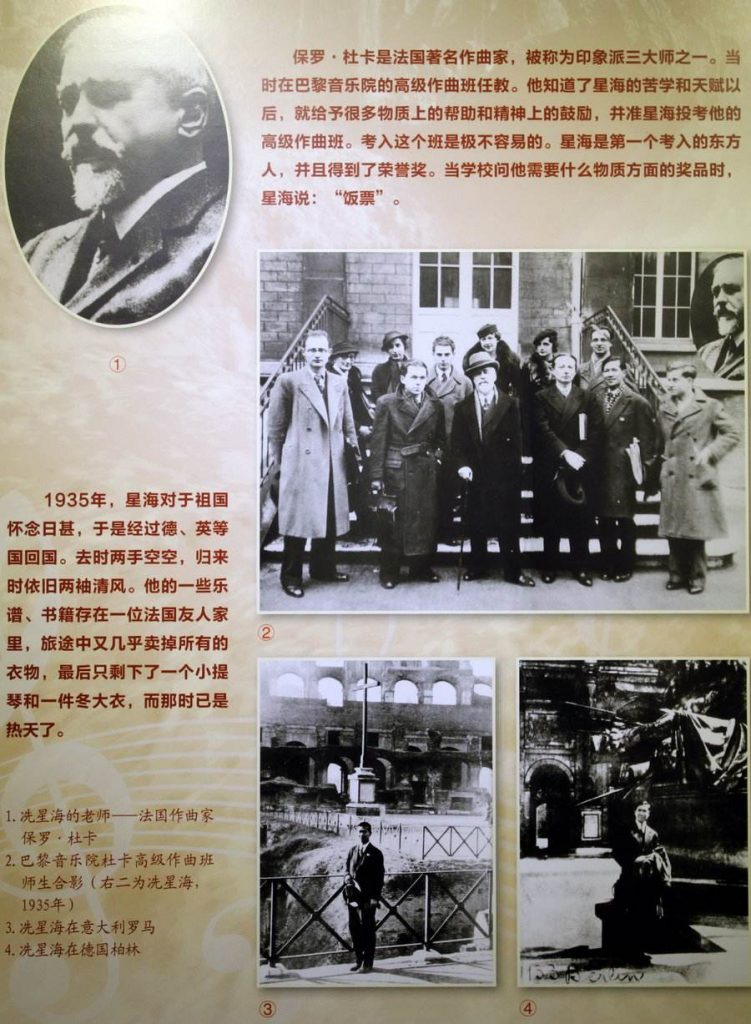
Xian Xinghai composed over 300 works and published 35 papers.His influence in Chinese music won him the title People’s Composer.
Memorials
In memory of Xian Xinghai,both the Xinghai Conservatory of Music and the Xinghai Concert Hall in Guangzhou were named after him.To commemorate the 100th anniversary of his birth,a 3-meter high statue of Xian Xinghai was erected at the intersection of Avenida Xian Xing Hai and Rua de Berlim streets in Macau.
